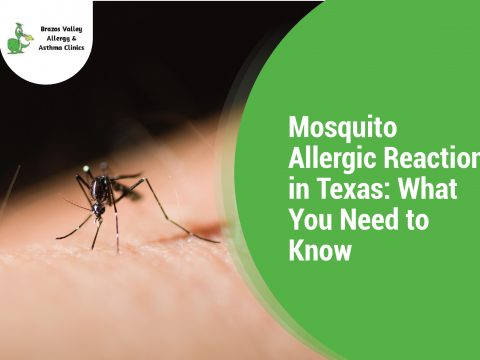- 979-485-9287
- office@bvallergy.com
-
 979-251-7804
979-251-7804
Allergic Conjunctivitis: Causes, Symptoms, and Triggers

Back-to-School Allergies: How to Create an Allergy-Friendly Environment
August 18, 2023
Texas Ragweed Allergies: Survival Guide to Managing Allergies
September 22, 2023What is Allergic Conjunctivitis?
Allergic conjunctivitis is a common eye condition affecting many people worldwide. According to the National Institutes of Health, over 40% of the world’s population suffers from allergic conjunctivitis. This condition occurs when the conjunctiva, the clear tissue that covers the front of the eye and the inner part of the eyelids, gets inflamed due to an allergic reaction.
If you want to better understand allergic conjunctivitis causes, symptoms, and triggers, here’s a detailed guide on one of the most common eye conditions in the world.
Understanding Allergic Conjunctivitis
As pointed out by medical researchers, allergic conjunctivitis does not come from a single source. Several factors, such as allergens and genetics, are the typical culprits. Exposure to these allergens triggers an immune response, leading to inflammation and irritation of the conjunctiva.
What Causes Allergic Conjunctivitis?
Below is a compilation of the most common causes of allergic conjunctivitis, as experienced by individuals with the condition.
-
Pollen
According to John Hopkins Medicine, exposure to pollen is one of the most common triggers of seasonal allergic conjunctivitis. During certain times of the year (such as spring and fall) trees, grasses, and weeds release pollen into the air. When these airborne allergens come into contact with the eyes, they can cause symptoms of allergic conjunctivitis.
-
Dust Mites
Dust mites are tiny critters that live and thrive in warm, humid environments. They are a common trigger for allergic reactions, including allergic conjunctivitis. The American College of Allergy, Asthma, and Immunology stated that when dust mite allergens come into contact with the eyes, they can cause itching, redness, and swelling.
-
Animal Dander
Animal dander, which consists of tiny flakes of skin, hair, or feathers, can trigger allergic conjunctivitis in susceptible individuals. The American Academy of Allergy, Asthma, and Immunology confirmed that pet dander may cause eye allergies and dust mites all year round.
-
Mold Spores
Mold spores are airborne particles released by mold colonies that grow in damp and humid environments. Studies from John Hopkins Medicine say that when mold spores enter the eyes, they can cause an allergic eye reaction, leading to conjunctivitis symptoms.
-
Eye Irritants
Certain substances can irritate the eyes and trigger symptoms of conjunctivitis in some individuals. These irritants include cigarette smoke, air pollution, strong odors, and chemical fumes.
Allergic Conjunctivitis Symptoms
Allergic conjunctivitis manifests through symptoms that vary in severity. Some common symptoms of allergic conjunctivitis include:
-
Itching
One of the hallmark symptoms of allergic conjunctivitis is itching of the eyes. The itching sensation can be intense and persistent, leading to discomfort and irritation.
-
Redness
Redness of the eyes is another common symptom of allergic conjunctivitis. The eyes may appear bloodshot and inflamed due to the allergic reaction.
-
Watery Eyes
Aside from red eye allergy, watery eyes, also known as tearing, are typical symptoms of allergic conjunctivitis. Excessive tear production occurs as a response to the irritation caused by the allergens.
-
Swelling
Swelling of the eyelids and the conjunctiva often relates to eye infections or allergies. The swelling can make the eyes appear puffy and may contribute to further discomfort.
-
Sensitivity to Light
In some cases, people with allergic conjunctivitis may experience increased sensitivity to light, a condition known as photophobia. Exposure to bright lights or sunlight can exacerbate the symptoms and cause discomfort.
Triggers of Allergic Conjunctivitis
Apart from the specific allergens mentioned earlier, certain triggers can worsen the symptoms of allergic conjunctivitis.
These triggers include:
-
Seasonal Changes
Seasonal changes, such as the onset of spring or fall, can increase pollen levels in the air. This increase in allergen exposure can trigger allergic conjunctivitis symptoms in susceptible individuals.
-
Environmental Factors
Environmental factors, such as high humidity, can promote the growth of mold and dust mites. Increased exposure to these allergens can aggravate allergic conjunctivitis symptoms.
-
Contact Lenses
Wearing contact lenses can sometimes exacerbate allergic conjunctivitis symptoms. The lenses can trap allergens and irritants, increasing discomfort and irritation.
-
Indoor Allergens
Indoor allergens can be present year-round, including dust mites, pet dander, and mold spores. Exposure to these allergens indoors can trigger or worsen symptoms of allergic conjunctivitis.
-
Occupational Allergens
Some individuals may be exposed to allergens in their workplace, such as chemicals or airborne particles. Occupational allergens can contribute to the development or worsening of allergic conjunctivitis symptoms.
Treatment
Many options exist to treat allergic conjunctivitis, including identifying the triggers, medication, home remedies, and lifestyle changes. These treatments include the following:
Identifying Allergens
Identifying the allergens that trigger the condition is crucial. Allergens can vary from person to person and may include pollen, pet dander, dust mites, mold spores, and certain medications. Watch out for these triggers to reduce the risks of an allergy attack.
Medications
The common medications for allergic conjunctivitis are antihistamine eye drops, mast cell stabilizers, non-steroidal anti-inflammatory drugs, and oral histamines. These medications efficiently provide relief.
Home Remedies
Home remedies for allergic conjunctivitis are safe and convenient. If you can’t visit your doctor, try these solutions:
- Rinse your eyes with a saline solution to remove allergens.
- Place chilled cucumber slices on closed eyes to reduce inflammation.
Lifestyle Changes
Making specific lifestyle changes can complement medical treatments for allergic conjunctivitis. These may include:
- Wearing Sunglasses: When outdoors, wear sunglasses to shield your eyes from allergens.
- Avoiding Eye Rubbing: If you are feeling signs of allergic conjunctivitis, do not rub your eyes as it can worsen symptoms.
Conclusion
Allergic conjunctivitis is a common condition characterized by the swelling of the conjunctiva due to an allergic reaction. It can be caused by allergens, including pollen, dust mites, animal dander, mold spores, and eye irritants.
Ocular allergy is a highly manageable and avoidable condition despite its prevalence. Learning your triggers and knowing when to visit your allergist is crucial. Watch out for the abovementioned signs, and consult your doctor whenever you experience persistent symptoms. We hope that we have enlightened you about allergic conjunctivitis, so you can effectively manage the symptoms in case they occur.
Frequently Asked Questions
Q: Can allergic conjunctivitis be cured?
A: While allergic conjunctivitis cannot be cured, its symptoms are manageable with appropriate treatment and avoidance of triggers.
Q: Are there any over-the-counter remedies for allergic conjunctivitis?
A: An over-the-counter antihistamine eye drop is an ideal allergic conjunctivitis treatment. What’s more, artificial tears can temporarily relieve allergic conjunctivitis symptoms. However, we suggest you consult a healthcare professional for proper diagnosis and treatment.
Q: Can wearing sunglasses help with allergic conjunctivitis symptoms?
A: Wearing sunglasses can help shield the eyes from allergens present in the environment, reducing exposure and alleviating some allergic conjunctivitis symptoms.
Q: How long does allergic conjunctivitis last?
A: The duration of allergic conjunctivitis can vary depending on the individual and the triggers involved. In some cases, the symptoms may last for a few days, while in others, they may persist for weeks or even months.
Q: Can I prevent allergic conjunctivitis?
A: While it may not be possible to prevent allergic conjunctivitis entirely, you can minimize the risk of symptoms by avoiding known triggers, keeping your environment clean, and practicing good eye hygiene.
Q: Should I see a doctor for allergic conjunctivitis?
A: If you are experiencing severe or persistent symptoms of allergic conjunctivitis that do not improve with over-the-counter remedies, it is recommended to consult a healthcare professional for evaluation and appropriate treatment.
Q: What is the difference between allergic pink eye and allergic conjunctivitis?
A: Pink eye occurs due to viral conjunctivitis. It often starts in one eye and spreads to the other. Allergic conjunctivitis usually affects both eyes at once.
Say Goodbye to Itchy Eyes and Enjoy Clearer Vision!
Brazos Valley Allergy & Asthma Clinics is the most trusted name in College Station and Brazos Valley regarding allergy treatment and management. Our board-certified allergists begin with accurate allergy testing to determine your condition, allowing them to provide the proper allergic conjunctivitis medications based on your needs.
We treat eye allergies, including allergic conjunctivitis, using evidence-based methods with years of experience. Our goal is to help you achieve the allergy-free life you deserve.
Book an appointment by clicking this link.




